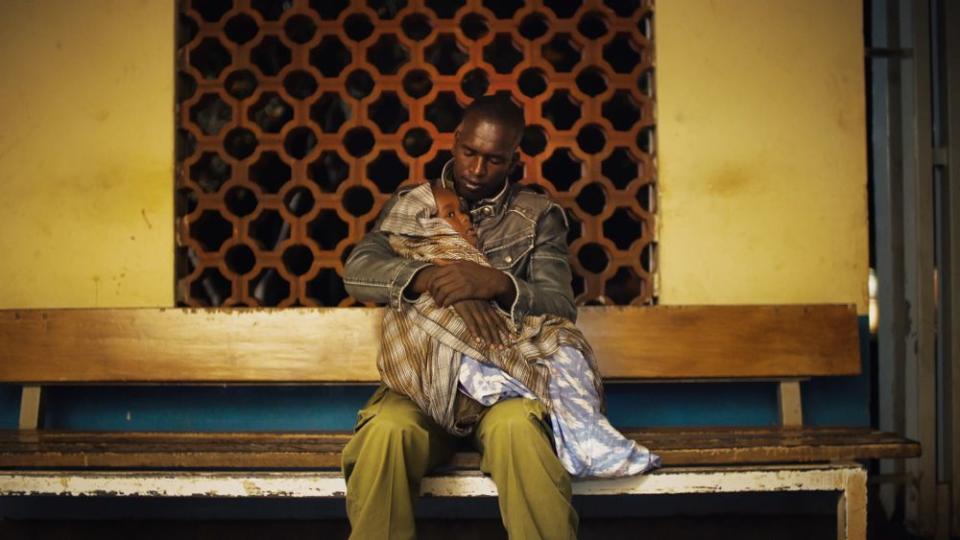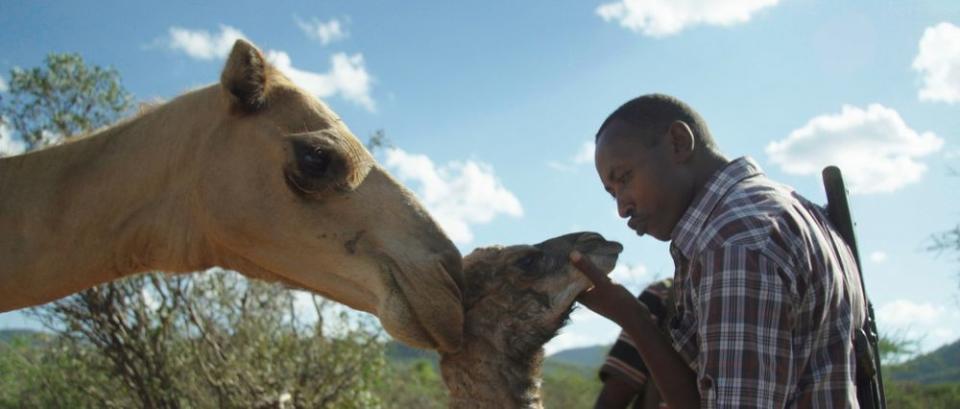When Lambs Become Lions Documentary: Why Elephant Poaching in Africa Is 'Complicated Issue'
When Jon Kasbe set out to make a film about African elephant poaching, he had no idea how complex the issue can be.
African elephants are still being killed by the thousands each year for their ivory tusks to make trinkets and tchotchkes, even though international ivory trafficking has been illegal since 1990, the WWF reports.
Elephants are dying off at a dangerously fast pace, with the population hurtling toward extinction.
Yet, poaching remains rampant.
The reasons why, Kasbe came to discover while filming his latest doc, When Lambs Become Lions, “are far more complicated than I ever could have imagined,” he tells PEOPLE. “There isn’t a simple solution to solve this.”
At first, the Emmy Award-winning director of Heartbeats of Fiji didn’t want to make a film about the conservation crisis.
“I was really resistant to it,” says the Brooklyn, New York-based filmmaker. “I felt like there had been so many stories around conservation and poaching that we didn’t really need another one.”
He changed his mind when he got to know an ivory trader named X and his cousin Asan, a ranger who goes after poachers, in northern Kenya.
“It was when I met X and sat down with him (and thought), what if we looked at this from the perspective of the local hunters? No one’s looked at the situation through their eyes.”
He learned that this issue is much more than a “good versus evil” narrative or one about people just trying to get rich.
“Poachers and rangers are extremely poor, and for them, this is a means of survival,” he says.
If locals had access to better jobs, they wouldn’t need to kill elephants for their ivory, he says. “This is a community with an infrastructure that doesn’t have what it needs to support options outside of hunting or protecting.”
“These guys are waking up and going to sleep every day thinking, ‘How am I going to feed my kids?’ as their top priority. And when that’s your top priority, there’s no time to think about, ‘Is this right or wrong?’ because your family is at stake.”

During the three years he spent making the film, living with his subjects and getting to know them well, he learned that if rangers were paid better and regularly, “then fewer elephants would die,” he says.
“Poachers are bribing rangers so easily because rangers aren’t getting paid,” he says.
RELATED: Endangered Baby Pangolin Kept in Cramped Darkness by Poacher Is Rescued and Released
Rangers earn roughly $100 a month, he says. “But X and his team make about $2,000 if they kill an elephant. Do the math.”
He also learned how dangerous poaching is. “X told me, ‘Look, we’re out here killing elephants, but these rangers are killing humans, and it’s getting swept under the rug.’ “
When X was a child, his father was gunned down by rangers. “He was shot 11 times, and there were no consequences for that. None.”
What can be done to help diminish poaching?
“Solutions are going to come from within Kenya,” he says.

Locals who have grown up in Kenya and understand the complexities surrounding poaching must be the ones to find creative solutions, he says. “That’s really exciting,” he says. “I think that’s where the answer is going to lie.”
As for critics who say he is taking the side of the poachers, Kasbe says, “We made a very conscious decision in the shooting and the editing to not show elephants being killed. This was really about understanding the ripple effects around those choices.”

